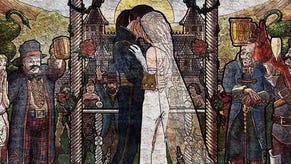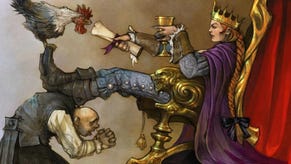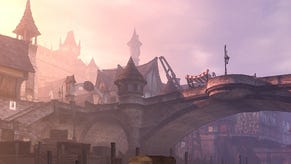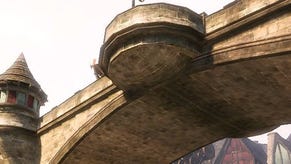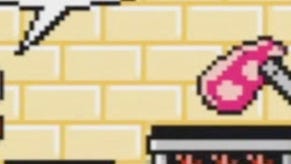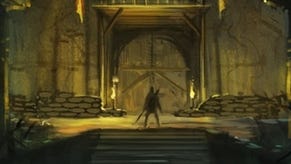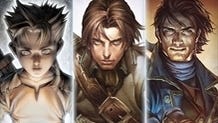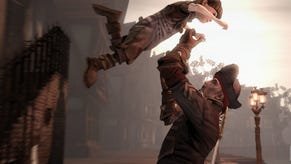Fable III
"A Napoleonic fairytale."
An auspicious start, but he's right, despite the familiar soft-spoken pantomime. The third time out is tricky, and Molyneux's not talking about another charity parachute jump, or a difficult internet follow-up date, but the next instalment in a vast, expensive, and rather divisive series. What he's getting at is that it's not just the art and the concerns inherent in the historical period that's changing this time around. "When you come to the third iteration what do you do?" he asks. "We've always wanted to surprise people with Fable. Hopefully you can see going from Fable I to II, we're getting slightly better at doing these things. Now we need to get better still. We need to raise the temperature, and inevitably entirely new mechanics play a part in that."
See the Future, the enigmatic puddle of DLC that reflected a fractured image of things to come earlier this year, hinted as much. Booting you forward to a period in Albion's history when you sat upon a throne and decided the fate of millions, many interpreted it as a major shift in genre. And while Lionhead isn't necessarily agreeing with that outright, it's prepared to offer some interesting hints at this unusually early stage of development.
So if this is Albion as you've never seen it before - caught between mechanised, inhuman progress and the bloomy rural dreaminess of the past - it's also Albion in a way you've never seen it before. And this is where the information starts to grow sparse. "When you think about a view of Albion you haven't had yet, looking down on it is a view you haven't had yet," suggests Josh Atkins, Fable III's lead designer - an American at the helm of perhaps the most English of games, but an American who helped out on parts I and II, and has also, y'know, worked for Miyamoto. "We're talking about being able to see more and influence more."
Atkins is quick to refine his vision slightly. "Fable is inherently the story of one person, remember. We have to have that narrative. It's not something we can get away from. All I can reveal at the moment is that we are working on a way to see the world with a wider view, so that you can directly influence large sections of the kingdom at any one time. But at its heart it's still a third-person action game." He laughs. "That experience of being able to directly change the world is something that would actually blend quite nicely with Fable, pulling the camera back a little and allowing you to see how you're changing things and what's going on."
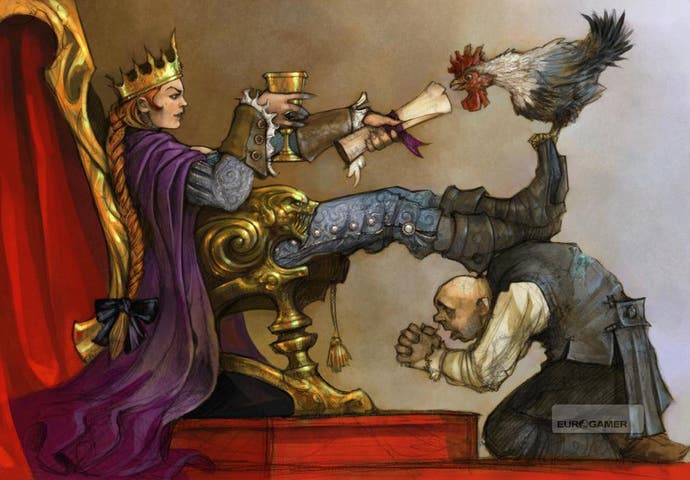
To clarify further, if Fable II spent a lot of energy making you feel significant, Fable III aims to show you the challenges that come with power and influence. "We've played off of the end of the last game," says Atkins. "After you've saved the world, how would the world treat you? What would they think about you as a hero? We've always been thinking about morality with this series, but we started thinking about responsibility too. And what that turned into was this idea that, if we want your moral choices to have a much wider impact, what would happen if your Fable II hero had become king or queen? We played around with that and got quite excited. But we really wanted the game to have some kind of journey. Fable is always about the path from anonymity to greatness.
"So maybe you're not the Fable II hero, but maybe you're attached to them. Maybe something happened to your Fable II hero, and you have to right the wrong. Maybe you're their child. That gives us the best of everything: you never play your hero from the last game, but we will be looking at the decisions you made on that adventure, and referencing that - those decisions will carry through."
Perhaps it's a more natural evolution than it seems. "In Fable I there was a lot of heroes around - a whole college," says Molyneux, ticking off games on his fingers. "In Fable II, we used that 500-year gap to say that heroes had died out, and you were the only hero left. Part of your job was to rekindle the heroes and bring them together. How can we play with that again? Then there's the choices and consequences thing: we're getting better, but some people still say, 'It's nice to have choices, but what did it really mean to the world?' So what we've come up with is a game where a good portion of the adventure is you going on this journey towards being the ruler of the land. You're earning that right. And what's interesting about that journey is you can take the notion of choices and consequences as almost being promises.
"What promises are you going to make to become ruler, and then how many of those promises are you going to keep? You can see with Tony Blair and Obama that it's very easy to make promises and be a rebel. If Che Guevara had lived to deliver on his promises, if he had ruled, would he have been that wonderful amazing person? There's many examples in history of rebels who once they get power, they go bad a bit. This time in Fable, you're not a hero whose only power is in his sword. There's a certain point in the game where you have the power to rule, so how are you going to use that?"

